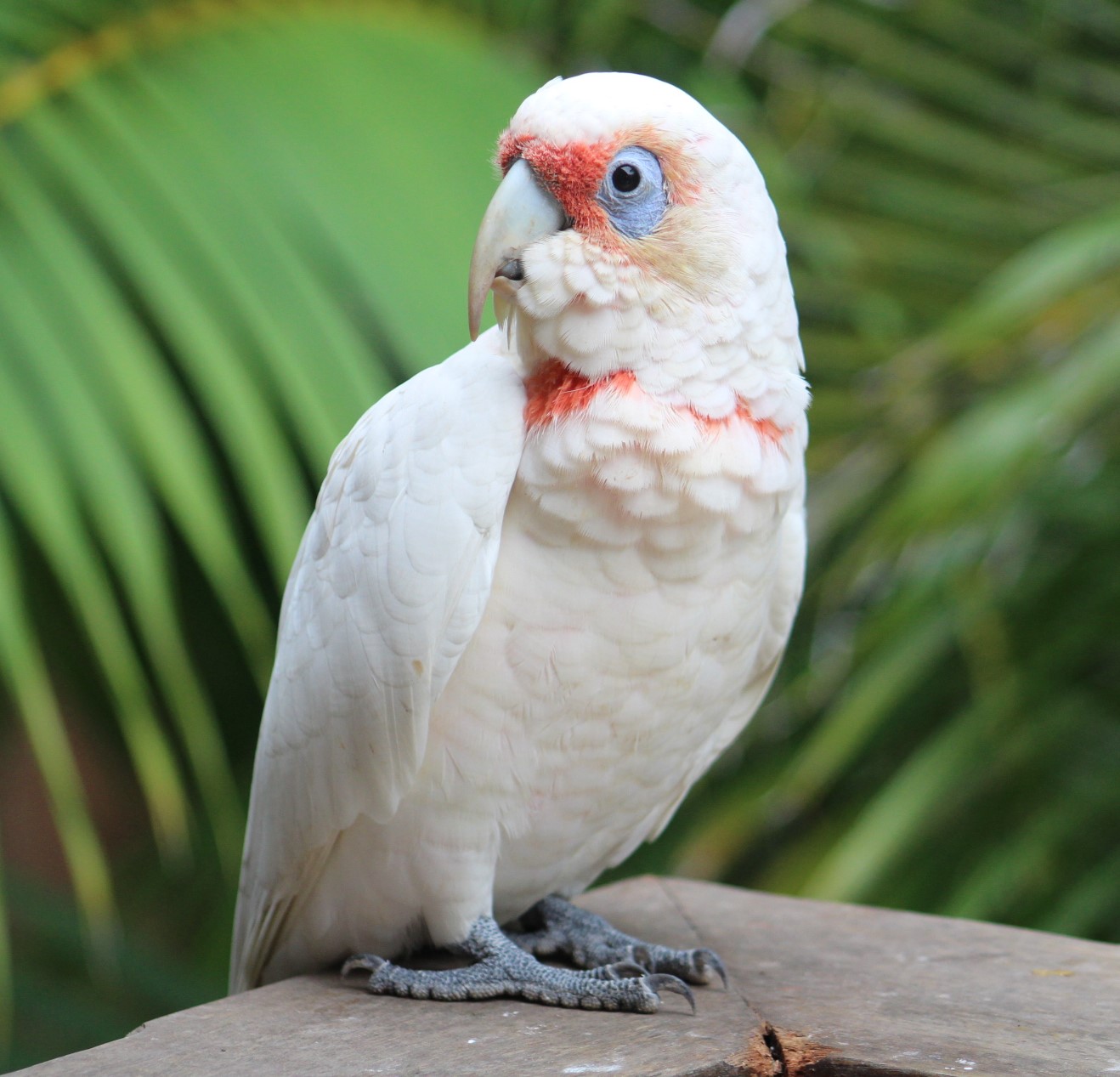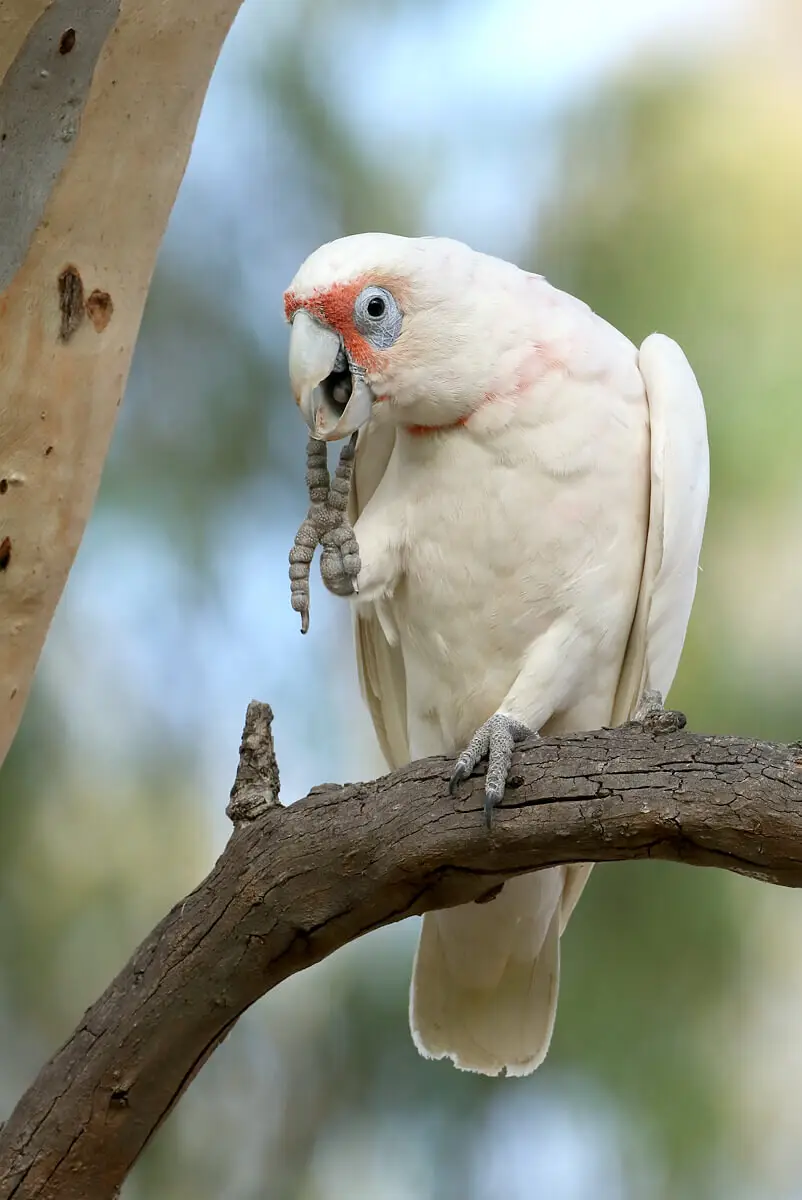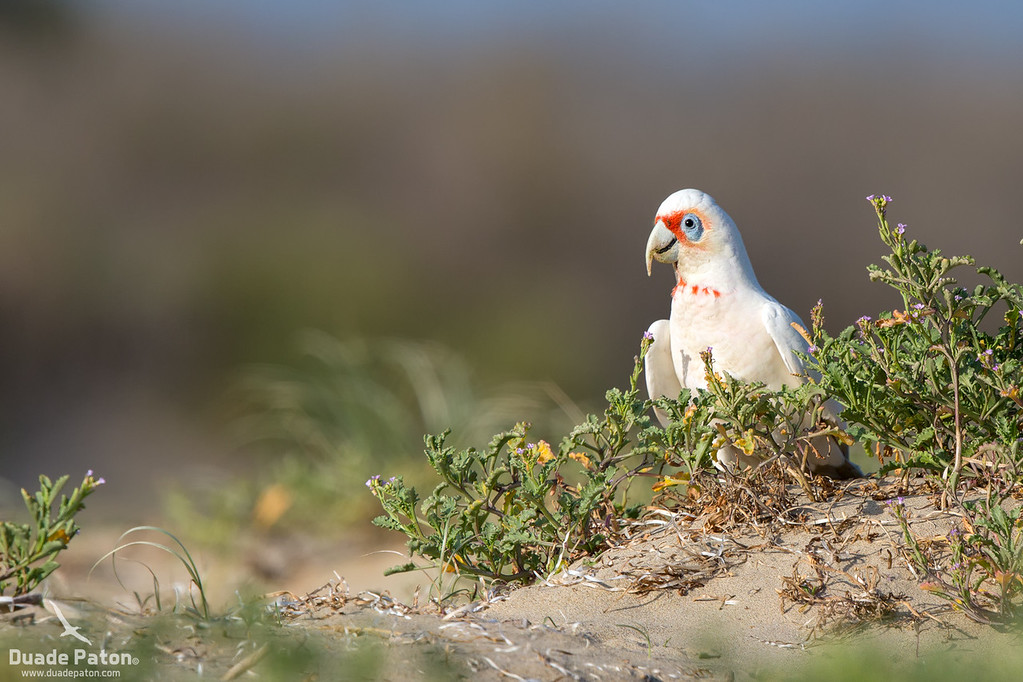The Long-billed Corella (Cacatua tenuirostris) is a striking white cockatoo native to southeastern Australia. This bird is easily recognized by its long, slender beak, which is uniquely adapted for digging up roots and tubers, its primary food source. The Long-billed Corella also has distinctive red markings around its eyes and a splash of red on its chest, contrasting with its predominantly white plumage.

These birds are highly social and often found in large flocks, especially in open woodlands, grasslands, and farmlands where food is abundant. Their loud, raucous calls are a common sound in the areas they inhabit, and they are known for their playful behavior and intelligence.




Long-billed Corellas are strong fliers, capable of covering large distances in search of food and water. They have a varied diet, including seeds, grains, and fruits, but are particularly skilled at using their long bills to extract underground plant material.


Despite their abundance in some areas, Long-billed Corellas can be a nuisance to farmers due to their habit of feeding on crops. However, they are also popular in aviculture, prized for their intelligence and ability to mimic human speech.




Conservation-wise, Long-billed Corellas are not currently considered at risk, but habitat destruction and conflicts with agriculture could pose future threats. Efforts to manage their populations in farming regions are ongoing to balance their ecological role with human activities.